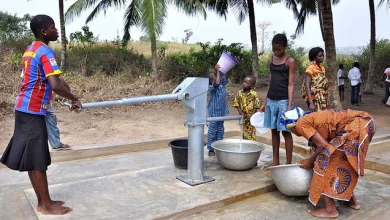Everything You Need to Know About Band Trailers: The Ultimate Guide

In the world of touring musicians, the road can be as demanding as the stage. The journey from one venue to another often requires carrying heavy equipment, instruments, and various other necessities. For bands and musicians, having the right vehicle to transport their gear is crucial. This is where band trailers come into play. Whether you’re a budding local band or a seasoned professional, a band trailer can be your best ally when it comes to managing logistics and ensuring your equipment arrives safely at every gig.
In this guide, we’ll take a deep dive into the world of band trailers—what they are, how to choose the right one for your needs, how to maintain them, and much more. By the end of this post, you’ll have all the information you need to make an informed decision when it comes to investing in a band trailer.
What Are Band Trailers?
Band trailers are specialized trailers designed to carry the heavy equipment used by musicians, including instruments, amplifiers, sound systems, and lighting. These trailers are essential for touring bands, as they provide a convenient and secure way to transport everything needed for a live performance. While some musicians opt to use rented trucks or vans, a dedicated band trailer offers several advantages, including greater space, organization, and security for expensive equipment.
Types of Band Trailers
Band trailers come in various types and sizes, each suited to specific needs. Here’s a look at the most common types:
- Enclosed Trailers
- Enclosed trailers are fully enclosed on all sides, protecting your gear from the elements and providing extra security against theft. They come in different lengths and heights, allowing for flexibility in how much equipment you can carry. Enclosed trailers are ideal for bands that need to travel long distances and want to ensure their equipment stays safe and dry.
- Open Trailers
- Open trailers, as the name suggests, are trailers without walls or a roof. While they are more affordable and provide easier access to your gear, they leave your equipment exposed to weather conditions. Open trailers can be a good option for short local gigs, especially if your gear is rugged enough to withstand the elements. However, for longer tours, they are less reliable in terms of protection.
- Gooseneck Trailers
- Gooseneck trailers are larger trailers that attach to a vehicle using a gooseneck hitch, which is mounted in the bed of a truck. These trailers provide more stability and maneuverability than bumper-pull trailers and are often used for transporting large amounts of gear. They are ideal for bands that need to carry a lot of equipment or have a larger setup.
- Bumper Pull Trailers
- Bumper pull trailers are the most common type of trailers for bands. They are hitched to the bumper of a towing vehicle and come in a range of sizes. Bumper pull trailers are easier to maneuver than gooseneck trailers, making them a popular choice for smaller bands or those with less gear to transport. These trailers can be either enclosed or open, depending on the band’s needs.
Why Do Bands Need Trailers?
- Space for Gear
- The most obvious reason a band needs a trailer is to provide enough space to store and transport their gear. From drums and guitars to amplifiers, microphones, and lighting rigs, the amount of equipment needed for a live show can be staggering. A band trailer ensures that all your gear fits in one space, allowing for more efficient organization and easier transportation.
- Protection of Valuable Equipment
- Musical instruments and gear can be expensive, and some of them (like guitars, amplifiers, and microphones) are delicate. A trailer, particularly an enclosed one, offers protection from weather conditions, road debris, and potential theft. This is especially important for touring bands who might be stopping in unfamiliar locations and parking in areas with limited security.
- Better Organization
- A trailer gives you the freedom to organize your gear systematically. Whether you use racks for guitars, shelves for pedals, or custom-built storage compartments for fragile equipment, a well-organized trailer helps prevent gear from getting damaged during transport. It also saves you time when loading and unloading because everything has its place.
- Mobility and Convenience
- Touring bands often need to move between venues in a short amount of time. Having a dedicated band trailer allows you to travel efficiently without worrying about rentals or finding a suitable vehicle to transport your gear. With a trailer, you can also avoid extra transportation fees that might come with renting larger vehicles.
- Cost-Effective
- While the initial investment in a band trailer can be significant, in the long run, it can be a cost-effective solution for touring musicians. Renting trucks or vans for each gig can add up quickly, especially for bands that tour frequently. Owning a band trailer allows you to avoid these ongoing rental costs and gives you more flexibility when planning your tours.
Choosing the Right Band Trailer
Selecting the right band trailer is crucial to ensure it fits your needs. Several factors should be considered before making a decision.
1. Size
- The size of the trailer should be determined by how much gear you have to transport. A smaller band with minimal equipment may only need a 5×8 or 6×12 trailer. However, if you’re part of a larger band with a more complex setup, you may need a trailer that’s 8×16, 8×20, or larger. Take inventory of your gear and assess how much space you’ll need for instruments, amps, cables, lighting, and other essentials.
2. Weight Capacity
- Trailers come with varying weight capacities, so you need to make sure the trailer can support the weight of your gear. Check the Gross Vehicle Weight Rating (GVWR) of the trailer to ensure it’s capable of handling the total weight of your load. Overloading a trailer can lead to dangerous driving conditions and potential equipment damage.
3. Durability
- Touring can be hard on equipment, and your trailer is no exception. Look for a trailer that’s built to last, with sturdy materials like galvanized steel or aluminum. The construction should be durable enough to withstand long trips on rough roads. Consider whether the trailer has reinforced areas to prevent wear and tear over time.
4. Security Features
- Since band gear is often valuable, you’ll want to ensure your trailer has robust security features. Look for trailers with lockable doors and secure latching systems to protect against theft. Some trailers even come with built-in security systems, such as alarms or GPS tracking, for added peace of mind.
5. Towing Vehicle Compatibility
- Make sure the trailer is compatible with your towing vehicle. If you drive a large truck, a gooseneck trailer might be ideal. If you drive a smaller vehicle, you may be limited to bumper-pull trailers. Check your vehicle’s towing capacity to ensure it can safely handle the weight and size of the trailer.
6. Budget
- Band trailers can vary greatly in price depending on the type, size, and features. Set a budget and explore trailers within that range. While you may be tempted to go for a larger or more expensive option, remember that the trailer needs to suit your actual needs rather than just your wish list. Prioritize features that will benefit your band’s specific situation.
How to Maintain Your Band Trailer
Proper maintenance is essential to ensuring that your band trailer lasts for years and keeps your gear safe. Regular maintenance can also help you avoid breakdowns and costly repairs while you’re on the road.
- Check Tires Regularly
- Since trailers are often loaded with heavy gear, tire maintenance is critical. Check the tire pressure before every trip, ensuring it’s within the recommended range. Inspect the tires for signs of wear, cracks, or punctures. If your trailer sits for long periods without use, consider rotating the tires to prevent flat spots from developing.
- Inspect the Brakes
- Safety should always be a priority when towing a trailer. Regularly inspect the trailer’s braking system to ensure it functions properly. If you notice any signs of reduced braking efficiency, have them serviced before hitting the road.
- Lubricate Moving Parts
- The trailer’s axles, hitch, and other moving parts should be regularly lubricated to prevent rust and ensure smooth operation. Check the manufacturer’s instructions for lubrication intervals and use the recommended products.
- Clean the Trailer
- A clean trailer not only looks better but also lasts longer. Regularly clean both the interior and exterior of the trailer, removing any debris that could damage your gear or the trailer itself. Make sure to clean the wheels and undercarriage, as dirt and grime can cause premature wear.
- Check the Electrical System
- Make sure the trailer’s lighting, brake lights, and turn signals are functioning correctly. Inspect the wiring for any signs of wear, and replace any damaged cables to prevent electrical issues while on the road.
- Store the Trailer Properly
- When not in use, store your trailer in a dry, secure place. If possible, keep it indoors or under a cover to protect it from the elements. Ensure the trailer is parked on level ground, and the weight is evenly distributed to prevent stress on any one part of the trailer.
Conclusion
Band trailers are an indispensable tool for touring musicians. They offer a secure and efficient way to transport valuable gear while ensuring that everything arrives at the next venue in good condition. When selecting the right band trailer, it’s important to consider factors such as size, weight capacity, durability, and security features. Maintaining your trailer properly will help it last for years, allowing your band to focus on what really matters—playing great music.
Investing in a band trailer can significantly improve the efficiency and security of your touring experience. So whether you’re just starting out or you’re already a seasoned pro, take the time to choose the right trailer for your needs and hit the road with confidence.









